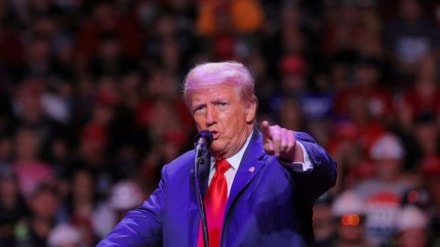In a dramatic turn of events, President Donald Trump announced on February 3, 2025, that the 25% tariffs he had planned to impose on imports from Mexico and Canada would be temporarily suspended. The move came after urgent negotiations with both countries aimed at resolving concerns over illegal immigration, fentanyl trafficking, and oil exports.
Trump’s tariffs, set to go into effect on February 5, were intended to pressure Mexico and Canada to take stronger actions against fentanyl smuggling and curb illegal immigration. The president also sought to address concerns related to oil exports from Mexico, a major supplier to the US market.
In a tweet following the announcement, Trump wrote: “We’ ve had great discussions with Mexico and Canada. They are taking strong steps on fentanyl and border security. The tariffs are on hold for now. We will keep working to make sure our country stays safe.”
The suspension of tariffs was a win for both Mexico and Canada, who feared the economic fallout from the duties. Canada had already announced retaliatory tariffs on US goods, and Mexico was prepared to do the same. The delay gives both nations a chance to meet Trump’s demands and avoid an all-out trade war.
Key Concessions: Fentanyl and Oil
Mexico, under pressure to combat the opioid crisis in the US, agreed to send 10,000 National Guard troops to the US-Mexico border to target fentanyl trafficking. Trump had long blamed Mexico for the flow of the deadly drug into the US, which has fueled the opioid crisis. In return, Trump promised to take action to stop the illegal flow of guns from the US into Mexico.
For its part, Canada agreed to step up efforts to prevent fentanyl from crossing its border and announced a new border security initiative. Prime Minister Justin Trudeau said Canada would also dedicate resources to curbing drug trafficking and appointed a special `fentanyl czar’ to oversee the efforts.
Another critical issue was the flow of oil from Mexico. Trump had warned that U.S. oil companies could face difficulties with rising prices if Mexico’s energy exports were disrupted. By putting the tariffs on hold, both sides avoided potential disruptions in this vital trade relationship.
Next Step
The tariffs are now paused for 30 days while both countries continue to negotiate. Trump emphasized that if Mexico and Canada do not meet expectations on border security and fentanyl control, the tariffs could be reinstated. The next few weeks will be crucial in determining whether a long-term solution can be reached.
For now, the temporary suspension offers relief to businesses and consumers on both sides of the border, but it also sets the stage for further high-stakes talks in the coming weeks.
